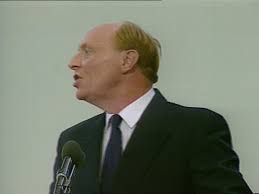
Introduction
Neil Kinnock has been a significant figure in British politics, particularly during the late 20th century. As the leader of the Labour Party from 1983 to 1992, Kinnock’s influence extended beyond his tenure, playing a pivotal role in modernising the party and shaping its direction. His journey in politics, combined with his commitment to social justice, makes his contributions both relevant and noteworthy in contemporary political discussions.
Kinnock’s Political Rise
Born in Cardiff in 1942, Kinnock began his political career as a Labour MP in 1970. He became a prominent voice within the party, swiftly gaining recognition for his stance on various issues, including education and workers’ rights. In 1983, Kinnock was appointed leader of the Labour Party, a role that came at a tumultuous time as the party faced significant electoral challenges.
Transforming the Labour Party
Under Kinnock’s leadership, the Labour Party underwent substantial reforms. He worked tirelessly to shift the party’s image from its traditional roots to a more centrist approach, advocating for policies that aligned with public sentiment. Kinnock’s famous speeches, particularly at the 1985 and 1990 Labour Party Conferences, showcased his vision for a united and electable party. His efforts culminated in increased popularity, leading the party to a narrower defeat in the 1992 general election.
The Legacy of Kinnock
Following his departure from leadership, Kinnock remained a significant player in global politics, serving as the Vice-President of the European Commission from 1999 to 2004. His post-political career allowed him to advocate for social and economic reforms on a broader platform. Kinnock’s legacy endures within the Labour Party, with many attributes of his leadership style reflected in the party’s ongoing attempts to forge a progressive pathway.
Conclusion
Neil Kinnock’s journey reflects the complexities of political evolution within the UK. His ability to confront challenges and pursue meaningful change continues to resonate with new generations of politicians and voters alike. As the political landscape shifts, Kinnock’s insights and experiences offer valuable lessons on leadership, resilience, and the importance of adapting to contemporary issues. His influence remains crucial as political factions seek unity in a divided environment, making him a relevant figure to study in understanding modern British politics.
You may also like

Boris Johnson: A Look at His Current Political Landscape

Recent Developments Involving Jacob Rees-Mogg
